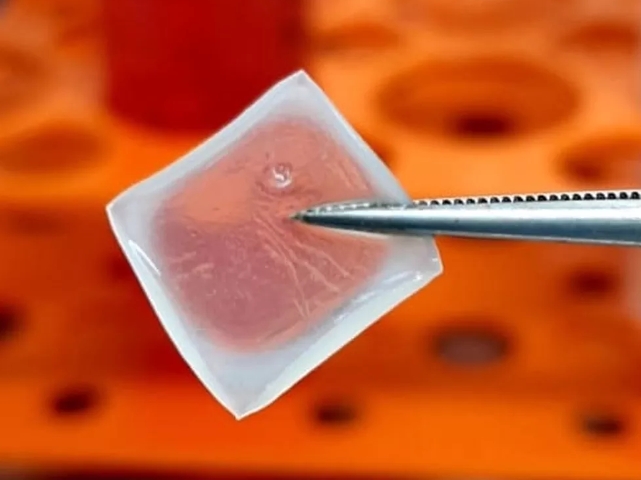


Photo: In Situ
Published on 08/30/2023
By Claudia Izique | FAPESP Innovative R&D – In Situ Cell Therapy, a startup based at the Supera Innovation and Technology Park incubator in Ribeirão Preto, São Paulo state, Brazil, is the winner of eAwards Brazil 2023, a prize for high social impact technological entrepreneurship conferred by NTT Data Foundation.
In October, the firm will compete with companies in 15 European and Latin American countries for the Global eAwards, to be announced at an event in Madrid (Spain).
The firm entered the contest alongside 116 other startups with a 3D printed biodressing developed with support from the FAPESP Innovative Research in Small Business Program (PIPE). In the coming months, it will have access to NTT Data’s mentoring program to help prepare for Global eAwards.
“Winning the Brazilian leg of the eAwards was very gratifying for us. It’s validated the impact of our solution for patients and health services generally. The cash prize is important, but beyond that, our products will be brought to market faster thanks to the connections and mentoring eAwards has provided and will continue to provide. Even more importantly, we’ll soon be able to take In Situ to Madrid, where we’ll pitch our case to important players in the global healthcare sector,” said Adriana Manfiolli, a researcher and partner in the firm.
Made with alginate hydrogel, the biodressing contains human umbilical cord stem cells and is applied directly to skin. The mesenchymal stem cells are self-renewing and multipotent, secreting bioactive molecules with various functions. The biodressing is considered “smart” because it accelerates wound healing as the live cells perceive signals emitted by the wound and respond by releasing cytokines and growth factors according to the tissue’s needs in all stages of the healing process.
The bioprinting process was developed with the aid of 3D Biotechnology Solutions, another startup supported by PIPE-FAPESP, and involves customization to match the size of the wound.
The product has been submitted to ANVISA, Brazil’s national health surveillance agency, for approval of clinical trials and registration.
The effectiveness of the biodressing was validated by researchers at the University of São Paulo’s Ribeirão Preto Medical School (FMRP-USP). They induced type 1 diabetes in 18 mice, which were anesthetized after 15 days for removal of 1 square centimeter of skin from their backs. The wounds were dressed immediately, and the mice were divided into four groups: diabetic or non-diabetic with a conventional dressing, and diabetic or non-diabetic with the biodressing containing mesenchymal stem cells (MSCs).
After ten days of treatment, the diabetic mice with the conventional dressing displayed 50% wound closure, while the diabetic mice with the “smart” biodressing containing MSCs displayed 80% wound closure.
The study also received funding from FAPESP via two projects (18/14815-0 and 19/22013-3), and was reported in an article published in March in the journal Regenerative Therapy. According to the article, the biodressing stimulated the immune system and boosted the secretion of several cytokines, including transforming growth factor-β (TGF-β), which is important to collagen synthesis and the repair of skin wounds (read more at: agencia.fapesp.br/41496).
Source: https://agencia.fapesp.br/44692